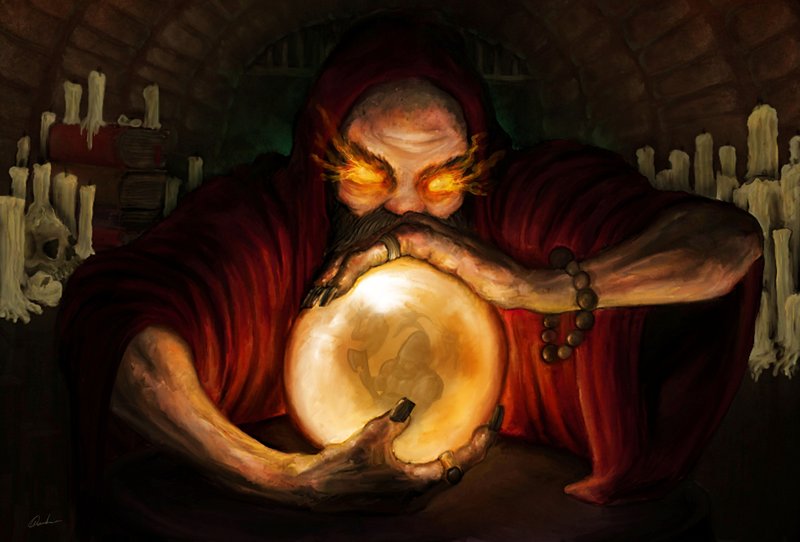 Thanks to the plethora of Spider-Man films and the many incarnations of Uncle Ben, we’re all very aware that “with great power comes great responsibility.” What we may not immediately realize is that this statement applies quite well to the role of GM in table-top RPGs. For those of us who’ve been running games for longer than we’ve been cashing paychecks, and especially for those new to the hot seat, I present to you the best ways you can exercise your deific power for the benefit of your players and your story. 1 . Fudging the Dice We begin with a controversial practice that, in many minds, is the equivalent of cheating. While that viewpoint has merit, I believe it is worth discussing the benefits of occasionally “miscalculating” the results of a dice roll to help the story move along or prevent meaningless player character demise. For example, should a player who’s new to the RPG scene roll up their first character, spend a good amount of time developing backstory and growing attached, only to have a stray arrow strike take them out of the action (or worse, kill them outright), it may not be best to let the dice fall as they may. Perhaps a last minute act of heroism from another player prevents the deathly consequence, or the arrow narrowly misses the new hero’s vital organs and simply wounds them. There are other examples, naturally, of situations in which the GM may decide to misread their dice. While this should never become a trend (the rules of the game must, at the end of the day, be respected), I believe a good Game Master puts the story and players before the randomness of the dice. Keep this tactic in your back pocket, and exercise with caution. 2 . Introducing an Ally The investigators dig through the hall of records to no avail, and are quickly running out of options. With the date of the vile summoning fast approaching, the player begin to despair. Luckily, a friendly face pulls them aside and indicates that they’ve noticed that the group has been trying to stop the Cult of the Faceless One, and they’re willing to provide some key facts in return for the safety the group can offer. In this example, the players were struggling to complete the adventure, be it by the taciturn nature of the dice or unforeseen roadblocks. The GM brings in a ringer, an NPC who can help them complete one of their objectives and thus move the story forward. The greatest drawback to this method is the fine line that the GM must walk between mild, believable assistance and Deus Ex Machina. Still, introducing an interesting NPC who can help the party but also provide their own intriguing complexity to the story can be a great way to provide subtle assistance to a beleaguered party. 3 . Refreshing the Points Many games provide certain expendable points that allow players some measure of control over the random chance generated by the dice. Whether they be called fate points, fatigue points, essence, or otherwise, their use helps make the players feel more heroic and in charge of their own destiny. When the going gets tough, expect the players to start running low on these helpful pips. Don’t feel bad about giving them more when they need them most. There is, as always, a balancing act to be performed here, but you can always come up with a good reason to provide a few more points during the biggest challenges of your game. Perhaps the players are reinvigorated by their heroic exertions, they receive a second wind, or fate smiles upon them that auspicious day. This simple “recharge” can help the players not only accomplish their lofty goals, but do so with dramatic flair in the most harrowing of moments. 4 . Taking a Step Back Oftentimes, the greatest exertion of your power as a GM is to choose not to administer it. Letting the chips fall where they may, providing control of the narrative to players, and relying on improvisation can keep a game fresh and interesting. Players will almost certainly be more immersed in a world that feels like it’s reacting to their every move rather than one that dictates their actions. If the game feels like it's staying on the rails or adhering too strongly to your preconceived narrative, take a step back and see what the players want to do. Let one of their ideas have weight in your plot, even if you didn’t originally plan for it. I have a feeling that you’ll be glad you did, even if the first few departures from your plotline are a little bumpy. Remember that as the GM, you have the power. Nearly every game published in the last ten years includes a section about changing the rules to favor the fun. Take their advice and always exercise your power for good, not evil (unless evil would be more enjoyable!). David Horwitz is a gamer and freelance writer with an obsession for exploring new forms of leisure. If you’re looking for an inquisitive mind and a deft hand, or just want to chat about gaming, contact him at www.davidhorwitzwrites.com/contact . Leave a Reply. |
All blog materials created and developed by the staff here at High Level Games Archives
April 2023
Categories
All
|
Proudly powered by Weebly



 RSS Feed
RSS Feed